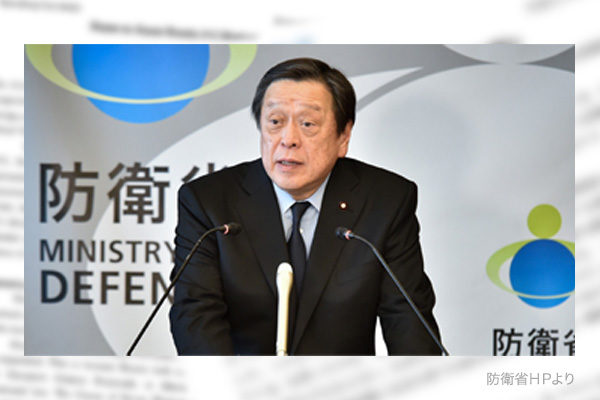Why not say what Japan should say? Japanese Defense Minister Yasukazu Hamada and Maritime Self-Defense Force Chief of Staff Adm. Ryo Sakai are advancing Japan-South Korea defense cooperation while virtually shelving an incident in which a South Korean naval destroyer directed its fire-control radar at a Japanese MSDF patrol aircraft in 2018.
At their meeting in Singapore on June 4, Hamada and his South Korean counterpart Lee Jong Sup agreed to shelve the incident and hold working-level talks on how best to prevent such incident from happening again. Sakai further said at his press conference on June 6, “The quick establishment of arrangements for future cooperation is more important than the search for the facts.”
Emerging suspicion of having sent would-be assassins back to the North
The current South Korean government of President Yoon Suk Yeol, despite its active promotion of improvements in Japan-South Korea relations, has taken over the previous Moon Jae In government’s claim that there was no direction of fire-control radar and an MSDF aircraft dangerously approached a South Korean destroyer. “Japan has claimed a Japanese patrol aircraft’s dangerous approach to our warship during a rescue operation in December 2018 as a normal flight and unilaterally announced the ship’s alleged direction of a fire-control radar at the aircraft without fact-checking, despite our repeated confirmation that the warship has never directed the radar,” said the Yoon government’s first defense white paper (p.174) released on February 16.
This may have made Japan to judge that it had no choice but to shelve the search for the facts to advance Japan-South Korea military cooperation. But the judgement is wrong.
At the core of the incident is why the South Korean destroyer went to the Sea of Japan to rescue a wooden boat. The Moon government is suspected of having blocked would-be assassin-suspects of North Korean leader Kim Jong Un from seeking asylum in Japan and sent the suspects back to the North at the request of Pyongyang, according to information leaking from inside North Korea.
If the suspicion is true, the South Korean military can be viewed as having served as a subcontractor of Pyongyang, indicating a grave treason. Isn’t it dangerous for Japan to advance military cooperation with South Korea without probing the suspicion? The Japanese defense minister and the MSDF chief should be aware of this point and continue to call for the probe.
Japan should say what it should say to normalize relations
In fact, South Korean prosecutors have been investigating the suspicion. In August 2022, a South Korean human-rights activist whom I know for years filed an accusation with the Seoul District Prosecutors’ Office against the former captain of the South Korean destroyer that directed a fire-control radar to the MSDF aircraft and the former captain of a large South Korean Coast Guard ship that rescued the North Korean wooden boat, alleging that they sent North Korean defectors on the wooden boat back to the North without protecting the defectors in violation of political neutrality required for public servants and duties to protect North Korean defectors and support their settlement. In March, prosecutors said they had investigated the accused, indicating their ongoing investigation. The former captain of the destroyer who now serves as defense attaché at the South Korean embassy in London was also a subject of investigation.
There is quite a large team conducting investigation about former President Moon within the prosecution authorities, according to informed sources. President Yoon may make a political decision at some point to arrest the former president and unveil the facts regarding the whole incident. Then, the Japanese defense minister and MSDF chief who have given up the search for the facts in defiance of SDF personnel’s safety may feel really ashamed.
I emphasize here again that Japan should say what it should say to normalize relations with South Korea.
Tsutomu Nishioka is a senior fellow and a Planning Committee member at the Japan Institute for National Fundamentals and a visiting professor at Reitaku University. He covers South and North Koreas.


